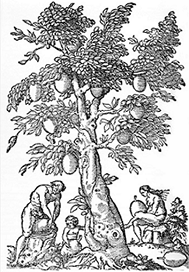capítulos de livros - 2016 / Mariza Peirano
Anthropology in Brazil
The development of anthropology in Brazil tells of a constant movement of both differentiation among neighboring disciplines and expansion into new fields of interest. When the social sciences were institutionalized in the 1930s, sociology was an encompassing subject that included what we today distinguish as anthropology, sociology, and political science. Over the years, a process of differentiation has taken place among the disciplines, but the major institutional links have been maintained among them. By the late 1960s, social anthropology had become the dominant, hegemonic orientation within anthropology, and the following decades saw a steady movement of inclusion of other topics besides anthropology’s traditional definition as the study of indigenous peoples. Today, anthropology embraces a broad array of interests, both in a sizeable Portuguese-speaking community at home, and in significant international contacts abroad.
After a brief historical setting, two angles are presented: the process by which a sociology lineage gave way to contemporary anthropology, and an ideal type approach to reveal the sort of alterities that are at stake in Brazil. Leia na íntegra...

